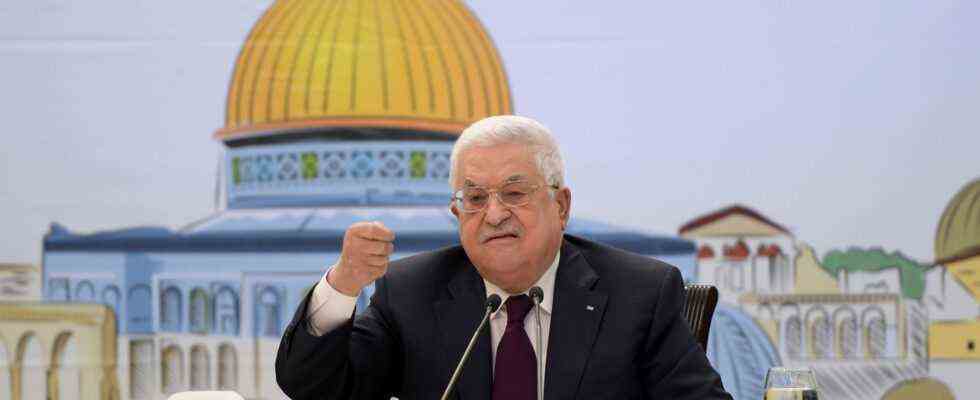Status: October 12, 2021 8:54 p.m.
Palestinian President Abbas has never been so unpopular: Almost 80 percent of people in the West Bank want his resignation, according to a survey. Even from Fatah it is said that too little has been achieved.
If you ask about the political mood in the West Bank, the conversation quickly comes to the reasons that are part of the reality of life for the people here: the occupation by Israeli settlements. Um Hasan, who is traveling with other women in the center of Ramallah, expresses what many think: “Our hope is: freedom, peace, stability. And most importantly: no settlements, no settlers, because they put a lot of pressure on us out, together with the army. ” Her 17-year-old son is in prison, she says.
If Mahmoud Abbas, the head of the Palestinian Authority, were a democratically elected head of state and the West Bank faced elections – he would have to worry about his political future. He is now 86, his successor has not been clarified, and his approval ratings have never been as low as they are now: Almost 80 percent of the population are dissatisfied and want his resignation.
That is the result of the latest survey that the “Palestinian Center for Policy and Survey Research” carried out in cooperation with the Konrad-Adenauer-Stiftung in Ramallah. The autonomy authority is seen as powerless against Israel, as fundamentally corrupt. And the fact that it persecutes its critics does not add to its popularity either. When human rights activist Nizar Banat died under torture by Palestinian security forces in late June, people took to the streets all over the West Bank.
“There is no vision, no unity”
Abbas Zaki is a senior representative of Fatah, who ruled here, and sits on the movement’s central committee. Because he has a lot of experience and a high reputation in his own ranks, he can afford a relentless criticism. “After all these years we haven’t achieved anything. And of course that doesn’t make the leader popular,” he says and admits: “There is currently no vision, no unity, no strategy. There are different priorities – and we have to know how we fight this vicious occupation. “
Hamas, which controls the Gaza Strip and is also on the advance in the West Bank, is benefiting from this situation. It is classified as a terrorist organization by the European Union. It advertises with much more aggressive tones towards Israel – and with deeds: the approximately 4,500 rockets that were fired in the direction of Israel during the armed conflict in May came from Hamas arsenals.
“28 years – but people do not see any positive consequences”
Hassan Yousef is one of the seven founders of Hamas and spent many years in Israeli prisons. He is actually an elected Member of Parliament in the West Bank – but that has not met in years. He has a simple explanation of why the Fatah government is so unpopular in the West Bank: it has achieved nothing for the people here.
“The Palestinian Authority has been around for over 28 years, since the Oslo Accords. But the people in Palestine do not see any positive effects on their lives. On the contrary: there have been setbacks on several levels,” says Yousef. “Through the settlements, arrests, killings and the demolition of houses. More than 540 checkpoints in the West Bank! These experiences have made those responsible for the Oslo Accords less and less popular.”
“Disappear” is written on a protest sign addressed to Abbas during a demonstration in the West Bank (archive picture from June 2021).
Image: AFP
Half of the people are in favor of violence
It is worrying that many Palestinians see the only way out of the situation through violence. “Almost half of the population agrees. At the moment, diplomacy is not very popular in public opinion,” says pollster Khlil Shikaki. “But I would like to emphasize: this is not a majority, but only half of the population. The other half is divided into those who are for diplomacy and those who are for a non-violent movement against the Israeli occupation.”
In view of the latest polls, it is doubtful whether diplomacy or peaceful protest have a future. If there were elections in the West Bank, much more radical forces would probably come to power – but they are not in sight here for the time being.

